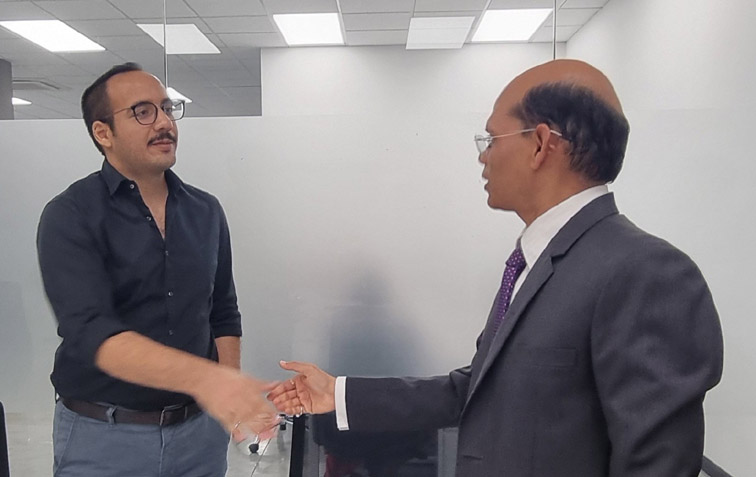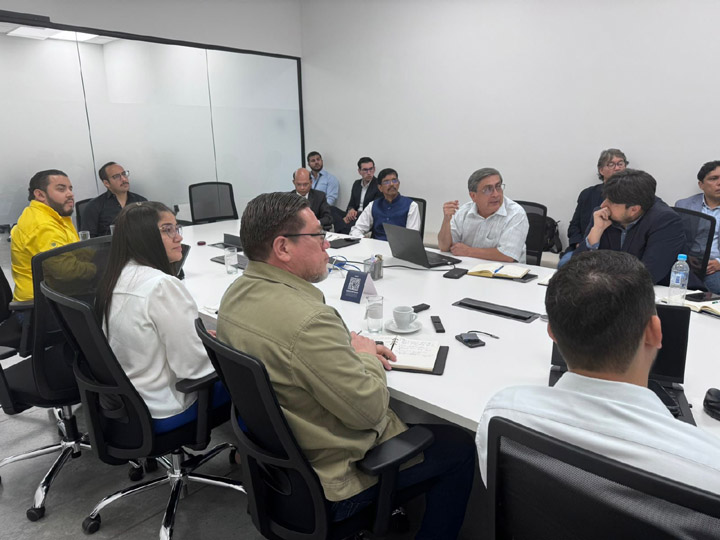GUATEMALA CITY (TIP): Embassy of India is Guatemala aims to propel indigenous production across diverse sectors following the vision of Prime Minister Modi’s encapsulated in “Make in India” and “India Goes Global”. With a primary emphasis on facilitating business operations, enhancing infrastructure, and upgrading skills, these guiding principles aim to strengthen India’s global footprint. Through strategic collaborations, outreach to investors, and diplomatic efforts, India seeks to assert its influence, promote mutual prosperity, and contribute to shaping a more interconnected and inclusive global landscape. This proactive approach towards bolstering trade and investment with Latin and Central American nations has resulted in strengthened economic bonds and increased collaboration across various sectors. By focusing on expanding market access, fostering technological exchange, and encouraging joint ventures, India is paving the way for deeper engagement with the region. India’s significant role in infrastructural development, particularly in sectors such as transportation, energy, and urban infrastructure, has played a pivotal role in driving sustainable growth and development in Central America. As part of these efforts, India is in advanced stages of collaboration with the Government of El Salvador through investments from Lakshmi Capital, an Indian company, to facilitate critical infrastructure projects. These projects include the construction of metro lines and the supply of buses, which will contribute significantly to the region’s socio-economic advancement.

Recently, Lakshmi Capital, and the Ministry of Public Works and Transportation of the Republic of El Salvador signed a Memorandum of Understanding in San Salvador on 16 February 2023 for construction of 22 km metro line project (extending from initial proposal of 11 kms) in San Salvador. The MoU was signed between Minister Romeo Rodríguez of Ministry of Public Works, Government of Republic of El Salvador and Transportation and Mr. Russell Alexander Luther Rodas of Laxmi Capital in the presence of Ambassador of India in Guatemala, Dr. Manoj Kumar Mohapatra. Following thorough technical discussions, the Concession Agreement is anticipated to be signed in the first week of April 2024. A team of Delhi Metro is also scheduled to visit El Salvador from 18-22 March, 2024 to oversee the technicalities of Metro line project in the region.
Extending this collaboration to improve the infrastructural development in the region and with proactive approach of the El Salvadorian Government, the parties also signed another MoU to supply 5000 buses on 22nd February 2024. These milestones will pave the way for a visit by a delegation led by Hon’ble Mr. Ibrahim Bukele to India to administer technical know-how of these transformative projects. Furthermore, discussions have already been started with Delhi Metro Rail Corporation (DMRC) for construction-related matters with regard to metro line project, and with Ashok Leyland and Tata Motors for bus procurement.
The metro line project and the provision of buses are geared towards revitalizing the economy and modernizing transportation infrastructure in the nation. Under the esteemed guidance and visionary leadership of President-elect Bukele, significant strides are being made by both countries towards realizing the established objectives. This collaborative effort underscores the strengthening bonds of friendship and mutual respect between India and El Salvador, fostering enhanced bilateral relations and mutual prosperity. India remains committed to further collaborating with the Government of El Salvador to advance other agendas such as atomic energy development, initiatives in non-renewable energy, digital transformation, and more.
